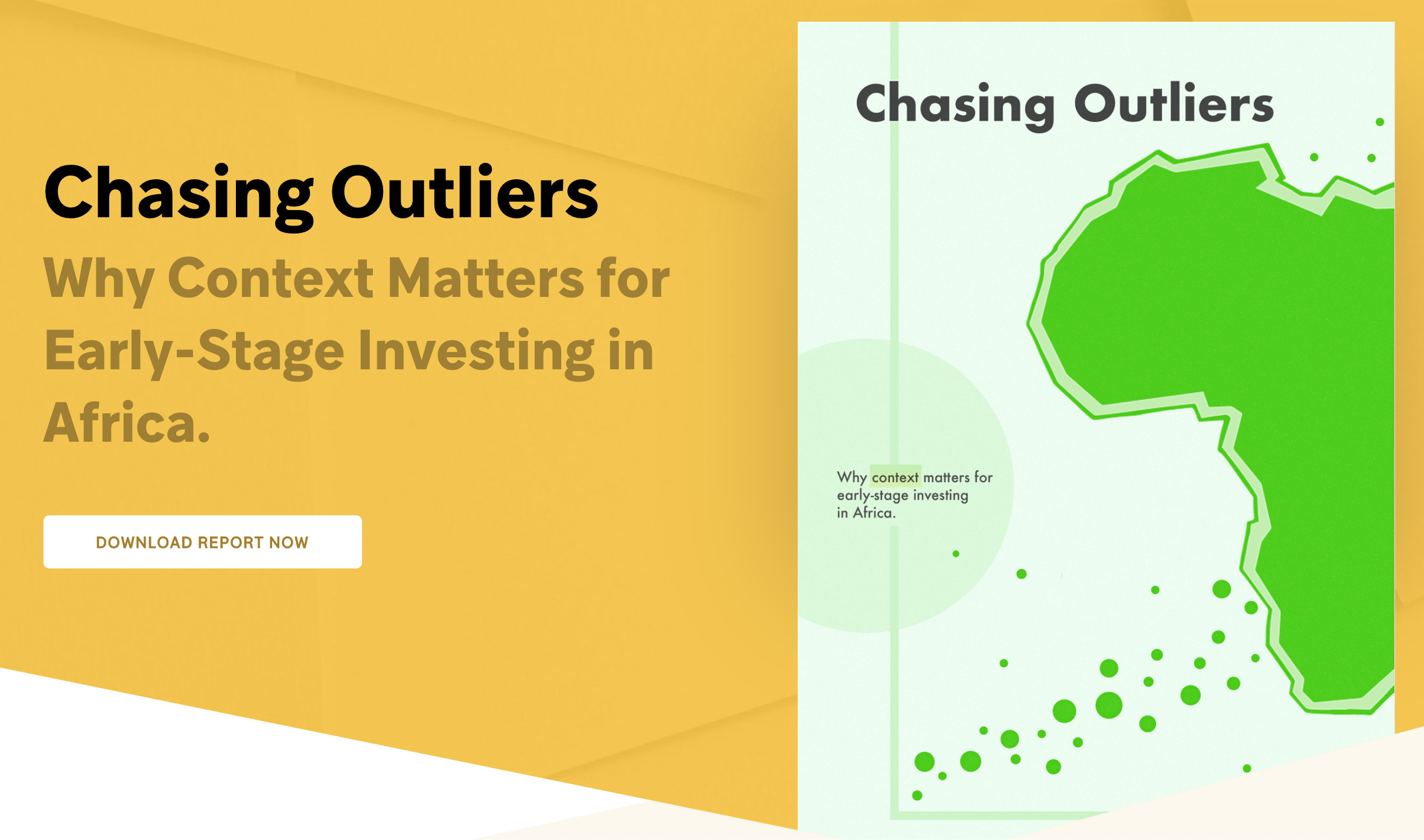 Kinyungu Ventures Research calls for Changes to Cut-and-paste VC Strategy In Africa
Kinyungu Ventures Research calls for Changes to Cut-and-paste VC Strategy In Africa
Paper recommends investment structures and approaches tailored to African operating conditions
[Press release] 19 January, 2021. Nairobi, Kenya. East African venture advisory firm, Kinyungu Ventures has published a white paper Chasing Outliers: Why Context Matters for Early Stage Investing in Africa that has found that there continues to be a wide misalignment between traditional venture capital models and the African market. The team behind the report is now calling for a broadening of approaches to institutional investment on the continent. Speaking with 100 Pan-African founders, investors, and LPs across 15 African countries, the research suggests investors should prioritize investing structures and practices that reflect the realities of operating in Africa. This includes adopting more flexible investing structures with longer time horizons.
According to the paper, there are multiple mismatches between key characteristics of Silicon Valley VC and African markets, which influence how startups and funds maneuver as well as what results they expect and produce. Findings show that African markets are large, but also fragmented, and its consumers have limited purchasing power. Furthermore, consumers on the continent are difficult to acquire and retain, yet the sheer size of the African market also presents a real opportunity for profit once the environment is clearly understood. The paper’s key recommendations for funds include:
- Adopting more focused investment strategies, such as investing in b2b companies or cross-subsidizing a portfolio with less risky, steady return assets
- Considering non-unicorn investing models geared at more resilient companies, with returns distributed more widely across the portfolio
- Using flexible structures such as debt or PCVs to accommodate market-level changes, where feasible
- Allowing a longer time horizon for returns, understanding that growth could be slow and difficult to achieve for many companies
Kinyungu Ventures catalyzes resilient businesses for local intergenerational prosperity. The East African-centric investor focuses on entrepreneurship in East Africa, startups, seed funding, debt financing, impact investing and angel investing.
Speaking on the launch of the white paper, Tony Chen, Managing Director of Kinyungu Ventures and co-publisher of the report says, “Capital in Africa is scarce and pursuing a “growth at all costs” strategy where capital pools are shallow presents huge risks for companies. We’ve also found that many great businesses don’t fit the typical VC profile, but have tremendous unfulfilled potential”.
Tayo Akinyemi, lead researcher and writer of the report added: “In our conversations with numerous investors and founders, it is clear that nuances in variables such as consumer behavior, cultural norms, and business practices impact startups significantly and being on the ground is crucial for success. While African markets aren’t always able to provide the outsized returns that Silicon Valley typically looks for in high-growth companies, a more focused strategy here could unlock real gems, as has been proven by some of the startup successes the continent has seen over the years.”

Tayo Akinyemi, Lead Researcher & Writer, Co-Publisher
Osarumen Osamuyi, Co-Publisher & Writer
Tony Chen, Co-Publisher
-ends-
For additional information or interview requests with Lead Researcher and Writer, Tayo Akinyemi or Report Co-publisher and Editor Osarumen Osamuyi, please contact Ernestina Berry | [email protected] or Loreen Fraser-Owusu | [email protected]
About Kinyungu Ventures
Kinyungu Ventures is an East African venture advisory firm that catalyzes resilient businesses for local intergenerational prosperity. More information can be found at kinyungu.com.
Surveys & Data Collection
The research used responsive interviewing, a flexible form of qualitative interviewing technique that allows the researcher to change questions in response to what they are hearing. It’s framed as a partnership between a researcher and a respondent in which the researcher gains insights from the respondent through non-confrontational conversation. This method was chosen because: 1) its flexible ethos fits the exploratory nature of the central question in the research; 2) the process mimicked an organic approach for obtaining actionable insights; and 3) the collaborative nature of the conversion style was appropriate for the paper’s enquiry, which involved asking people to share information of a potentially sensitive nature.
